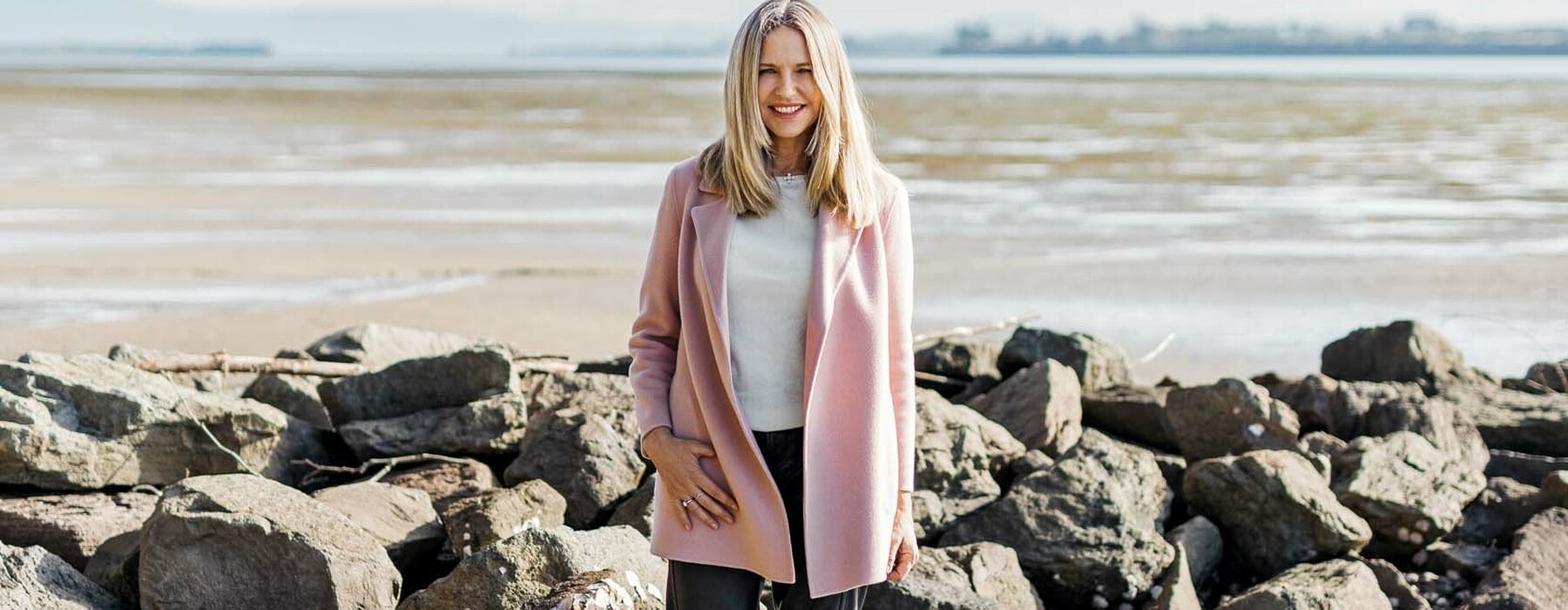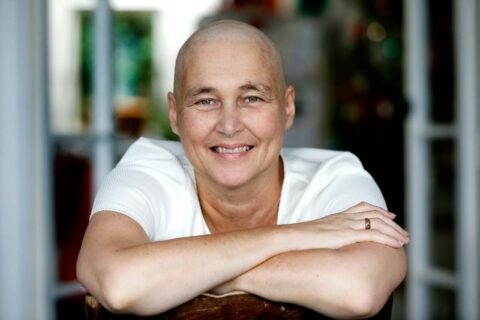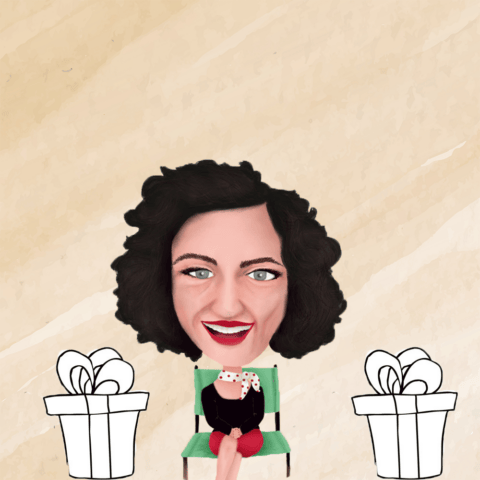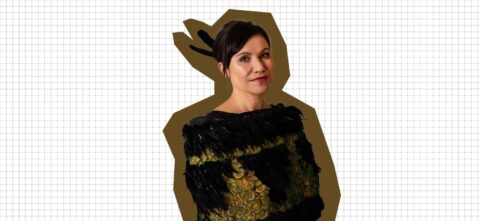Following the death of her mother, Sharon Hunter has co-founded a website that allows people to consider their funeral options now – so their loved ones don’t have to do it later.
“We’re in the goodbye business, not the grief business,” says Sharon Hunter, who is looking at me over Zoom, still unnervingly remembering the 22-year-old who launched PC Direct to enormous success 33 years ago. (Yep, it was that long ago… I counted).
Her hair is expertly cut into three different lengths, Jennifer Aniston-style, which means that at each friendly nod of her head, her hair grazes her chin, her collarbone and her shoulders at the same time. She radiates a happy-go-lucky vibe and, yes, I have to say it, good fortune as well.
It’s the face that launched a tech company on the stock exchange and won big time. PC Direct was founded with her then-business partner Maurice Bryham (also a 20-something).
The OG “start-up” opened with a modest $68,000 in capital and traded out of a small shop in Auckland’s Ponsonby, taking on the big multinationals supplying parts for computers. It traded on being a local business.
It was hugely successful, becoming an iconic brand of the tech era before being sold to Nasdaq-listed US Office Products in 1997 for $28 million.
It’s the kind of rags-to-riches story about someone young and beautiful that Kiwis love. No article at the time about PC Direct and Sharon Hunter failed to mention her age.
Sitting at home in Tauranga now, Sharon talks fondly about her younger self.
“A lot was made of me being only 22,” she says, “but most people don’t realise that by the time I’d reached that age, I had dropped out of nursing training, had four jobs, a very short-lived marriage and one-third of a business degree.”
Looking back now, she can see she was already a quintessential entrepreneur.
“I’d say yes to things. I was bouncing around. I didn’t have much of an off-switch and I was clearly searching for something. I was unable to commit to anything . . . They’re all the traits of an entrepreneur,” she says.
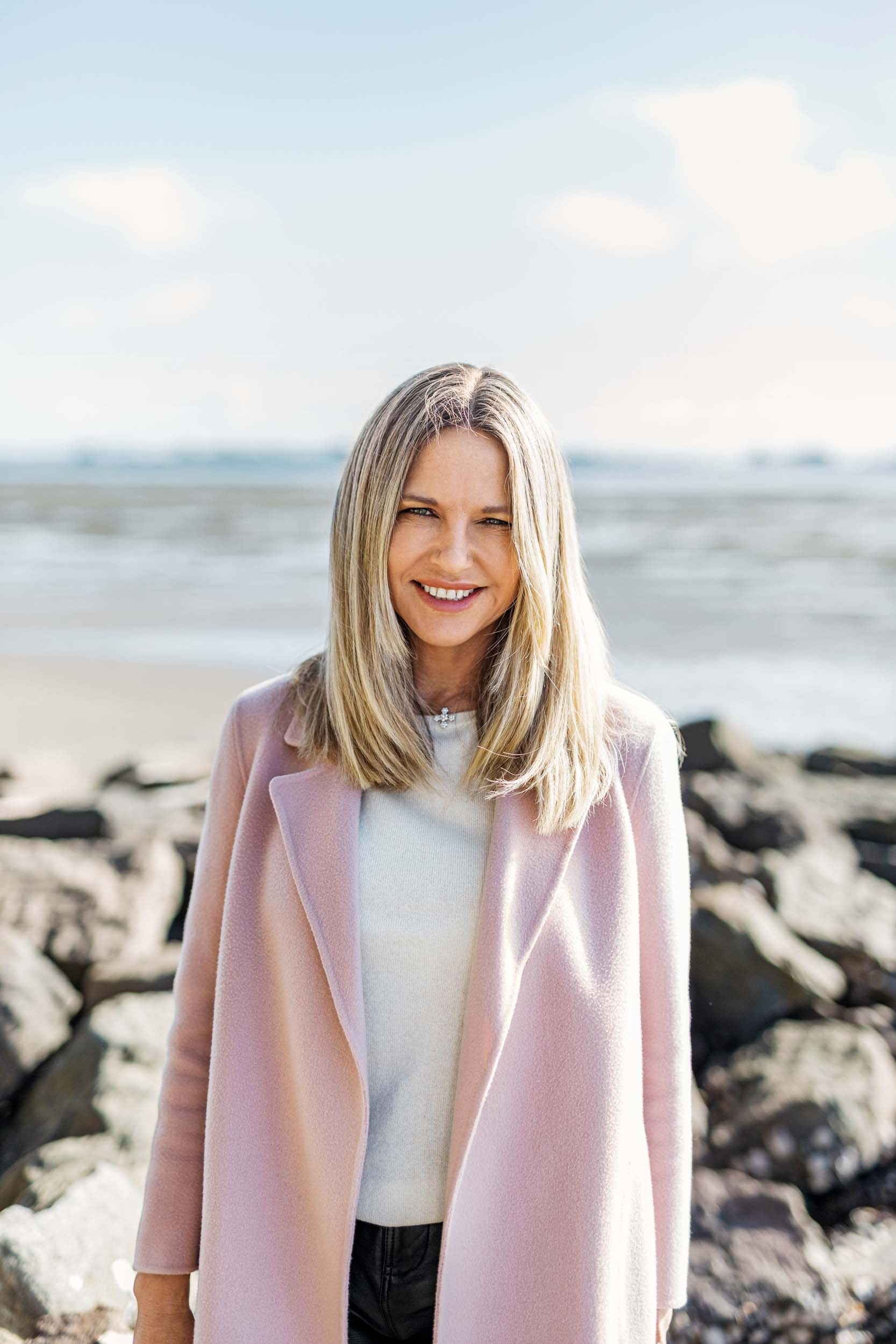
Sharon was born in the Waikato, but grew up in Tāmaki Makaurau, the eldest of four in a family that, she says, was lucky to have a “full-time mum who filled the biscuit tins”. She had what she describes as a “really happy childhood”.
“I had a horse when I was 10 and I have memories of racing in the door after school, chucking my bag on the floor, grabbing a biscuit and the halter for my horse and rushing out the door. I would return tired and exhausted and help with dinner. I remember lots of love.”
Her dad was a businessman and her mother a fiercely matriarchal woman who was also terrifically creative. A gardener and a seamstress, she taught Sharon to make her own clothes.
“I could really sew. I mean I could make a blazer, ball dresses, anything. Mum taught me to sew and some of my fondest memories are of Mum and me hanging out in a fabric store. I learnt on the old enamel Singer sewing machine from a very young age, and I just loved fashion. I often wonder why I never went into the fashion world.”
But fate had other plans. School had been the usual subjects. She excelled in English and geography but was bad at maths (no business studies back then), so she left school and went nursing, but dropped out and tried various jobs.
“There were so many times I would go to my mother and say, ‘Mum, I haven’t got this right’, and she was always calm. ‘You’ll work it out, Shaddie,’ she’d say.”
Sharon went to Wellington to follow a bloke, then landed her first job in sales with a company called Checkpoint Computers in Tawa.
“It was a very small company – a husband and wife and a small poodle. I credit them with seeing the talent in me. It was there that I knew I could sell,” she says.
She changed jobs at least three times before going to work for Imagineering – the computer distribution company where she met her business partner in PC Direct.
“This was before Microsoft was even a twinkle in Bill Gates’ eye. We could see what needed to be done, and we decided to do it for ourselves.”
Sharon’s mother is the reason we’re having this conversation. It was her mother’s death and funeral, and Sharon’s regret over how it was run – combined with a conversation over a gin and tonic with friend and businesswoman Jude Mannion – that gave rise to their new business venture, Great Goodbyes.
The tagline on the website has a smooth sales pitch: “We’ve thought of everything so you don’t have to… No pressure. No regrets. Just everything as it should be.”
“There are definitely similarities between PC Direct and Great Goodbyes,” Sharon says. “They’re both supply-chain disruptors. Back then, we challenged the business model with tech, and now we’re challenging the funeral industry, putting power into the hands of the people. There is so much information about funerals that people don’t have access to, and we aim to deliver all of that in one place.”
She believes the market is tightly held by the funeral industry and it’s not an area where people feel comfortable shopping around. Sharon is amazed that people spend many months planning weddings but only a few days planning a funeral. She wants to change the way we think and talk about them. She admits that elderly people who aren’t used to doing things online may find it challenging to use the website as a tool, but she says it’s something to do with a family member or friend.
“Being on the internet with someone is a bit like how people say you can have a difficult conversation with a teenager in a car because you’re both looking ahead and not directly at each other. The website is an ideal partner in this conversation.”
After her mother’s death, the family had a conventional funeral because they didn’t think there were any other options. They were seated for 45 minutes with the casket at the front, flowers and a eulogy.
Afterwards, Sharon felt the service didn’t “get” her mother.
“I don’t think the ceremony came close to expressing who she really was. My mother was an amazing gardener, but she was also a true creator. She could make something out of nothing. Time and again throughout my childhood, she took barren land and made gardens from scratch. She created things.”
How do you give voice to a person’s lived experience on Earth?
The website acts as a sort of Pinterest for funerals, with ideas and themes and 12 different categories for people, including The Runner, The Reader and The Gardener. Each category suggests ways in which you might dress the casket or surround them with things that recall their hobbies, pastimes or interests.
Sharon is responsible for all the writing on the website. She says she wrote The Gardener thinking about her mum.
“If I could do it again, I’d do her as The Gardener. I’d have a bower of lemons on the casket and no flowers. I’d print a funeral order of service with just one gorgeous photo of her and a recipe for her lemon curd on the back. Something that people could take away and use.”
Sharon’s text for The Gardener reads: “Nothing made them happier than having their hands in the dirt. There was something in nurturing growth in the garden that filled their soul.
“From the decades it took to grow a maple, to the seasonal reward in harvesting vegetables, and the pleasure in filling a vase with home-grown cut flowers – gardening defined them.
“The world became a better-looking place because of the seeds they sowed.”
Sharon is clear, however, that Great Goodbyes is not a social enterprise or a not-for-profit. There are dollars in death. The funeral industry is worth $US19 billion a year, and in Aotearoa, the sector was recently valued at $NZ260 million. Great Goodbyes hopes to take a slice of that.
In Portland, Oregon, where the company is based, hospices have handed out Great Goodbyes’ business cards, which have generated a lot of interest. They launched in Portland because, Sharon says, the business “needed scale”.
“We had no expectation that we would be welcome, but the end-of-life carers are really pleased we’re doing this,” she says. “They tell us it all helps [dying patients] to face the conversation.”

At the moment, the templates and the ideas are all free. The next stage will mean the business will likely clip the ticket somehow, but it will always remain a free service. Like Trade Me or Expedia, it uses the aggregator host model that steps into the middle between provider and customer.
However, at some point, she says, they will begin to put a value on services, so browsers can get an idea of the price scale.
Jude is living in the States, but Sharon has no plans to leave Tauranga, where she is based with her husband, Tenby Powell, a former mayor of the city. The family have a bach at Lake Rotoiti, which is finally being renovated, a place their two children are most likely to call their tūrangawaewae.
“Home” has been a lot of places so far for the family of four – Auckland, Sydney, Israel, the States and now Tauranga, where they moved after Tenby became mayor in 2019.
Most of her family live in Tauranga now, including her father, sisters, brother, mother-in-law, and gran. “We’re tight,” she says.
I ask about her research into the custom and culture of funeral practices and she is quick to point out that Great Goodbyes is not for people who have religious beliefs and want a religious funeral.
“They are already being catered for,” she says. “If you are Jewish or Muslim or Christian, then you already have ritual obligations.”
Rituals are built up over generations – and she agrees there is something comforting about repeating a format that has been done millions of times over in the same circumstances, no matter whether you like them or not.
“It’s hard to backfill ritual,” she says.
But she’s not out to change the rule book. She just doesn’t believe there ought to be any.
And her choices?
“I’m still working on mine,” she says, “but I’ve got my song. Southern Cross, by Crosby, Stills and Nash.”
The Irish poet, essayist and funeral director Thomas Lynch once wrote: “Planning, choices. We love these things. Planned parenthood, pre-nuptials, pre-arranged funerals – always this hopeful notion that we might pre-feel the feelings, the untidy, potentially embarrassing dynamics of grief; the blubbering… the sense that these unpredictable events might be turned into manageable retail experiences with numbers and prices that always add up.”
Whether the website is catering for people planning their own funerals or people needing help with someone else’s, it’s obvious that the funeral game is being upped.
And as Lynch wisely put it: “The notion of choice in the contemplation of our own mortality – that part of our nature about which we have no choice – is especially comforting.”

